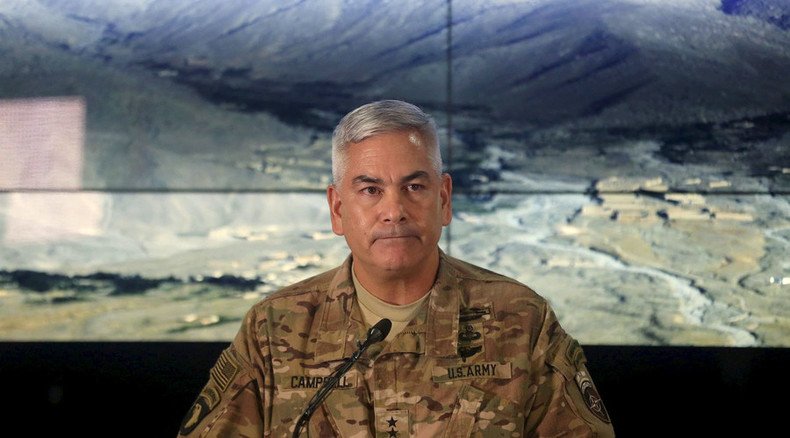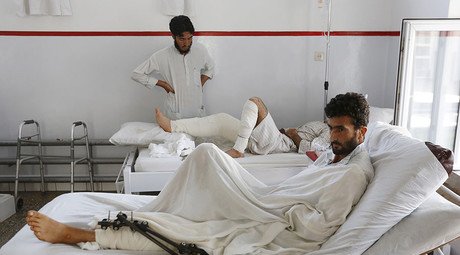A Pentagon probe into the deadly attack on the Doctors Without Borders (MSF) hospital in Kunduz, Afghanistan blamed the “tragic mistake” on human error and equipment failure. Several officers have been suspended as punishment.
The October 3 attack on the medical facility that killed 30 and injured 37 was a “direct result of avoidable human error, compounded by process and equipment failures,” commander of the US force in Afghanistan, General John F. Campbell, told reporters in Kabul on Wednesday.
“No nation does more to prevent civilian casualties than the United States, but we failed to meet our own high standards on October 3," Campbell said. "This was a tragic, but avoidable accident caused primarily by human error.”
Campbell and a military spokesman quoted the report’s summary and highlights of two investigations – one conducted by NATO and the Afghan authorities to determine facts of the case, and another US military probe to assign accountability. The full report runs to about 3,000 pages in length, but has not been made available to the public.
“Multiple errors resulted in mistakes,” Campbell told reporters. The AC-130 gunship was sent out following a request from US special forces and their Afghan allies, fighting the Taliban who had taken control of Kunduz several days prior. However, the gunship took off 69 minutes early, before its crew was fully briefed on what targets were off-limits, including the hospital, Campbell said.
A technical problem with the plane prevented it from sending or receiving messages, as well as interfering with the targeting grid, so the crew had to rely on visual recognition. They believed they were hitting a Taliban command center several hundred yards away, Campbell told reporters, according to the Air Force Times.
Doctors Without Borders called the US military 12 minutes after the attack began, Army Brigade General Wilson Shoffner, a military spokesman in Kabul, told reporters. By the time the C-130 operators were told they were hitting a hospital, the attack had ended, he said, adding that a missile was also fired at the plane during the strike.
The report also blamed “fatigue and a high operational tempo,” noting that the US and Afghan forces had been fighting the Taliban for five days at that point, according to the military newspaper Stars and Stripes.
Although the military did not specify how many officers were punished, New York Times quoted anonymous military officials to report that among them was an Army Special Forces captain on the ground in Kunduz.
Following the attack, MSF said that their facility had been clearly marked, that its GPS coordinates and location had been provided to everyone in the area for months, and that repeated pleas were sent to the US forces to stop the bombing. The gunship made five attack runs in the span of an hour, MSF said, hitting the facility with artillery shells.
The US military offered several conflicting explanations for the deadly attack, at first saying there had been a strike “in the vicinity” of the hospital that might have “resulted in collateral damage.” Campbell himself said on October 5 that Afghan forces had requested air support and that “several civilians were accidentally struck” in the bombing.
The hospital’s location was also well-known to US special operations analysts. They were investigating the facility for days prior to the attack, describing it as a base of operations for a Pakistani agent coordinating Taliban activities, AP reported last month citing US intelligence officials.
MSF continues to insist on an independent, international investigation into the hospital bombing, having described it as a “war crime.” The timing of Campbell’s press conference – just before the Thanksgiving holiday weekend in the US – has also aroused suspicions that the military might be trying to quietly bury the Kunduz hospital incident.


